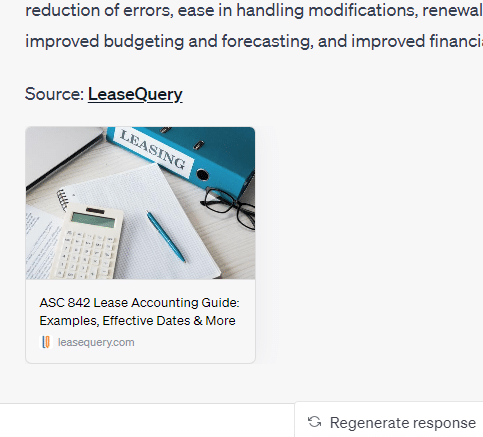Accountants use ChatGPT—or if not, they should be. The old way of Googling for information is not the most efficient way to find answers. In this article, you’ll see why.
As an accountant, you’ve used search engines such as Google to look for answers. But you may not have used a chatbot such as ChatGPT.
While search engines are helpful, you can turbocharge your searches for information by using ChatGPT and its plugins (more in a moment). It’s somewhat like conversing with the Internet.
Additionally, ChatGPT was trained with web information, so it can draw upon that knowledge to provide answers to you without even "searching" the Internet. The training cut-off was September 2021. So, if ChatGPT uses only the training information, you may not obtain current information (that was placed on the Internet after September 2021).
But you can supplement the training information with with current information by using ChatGPT plugins such as WebPilot. Below I explain how.
First, I'll start with an explanation of search engines, and then we'll move to how ChatGPT enhances your ability to find accounting answers.
Search Engine
A search engine is a software system designed to conduct web searches, which means searching the World Wide Web systematically for certain information specified in a textual search query. The search engine provides a list of results, often called search engine results pages (SERPs).
Examples of search engines include:
- Bing
- Yahoo
Crawling the Web
Search engines constantly crawl the web with spiderbots looking for changes, such as a new lease accounting article on my website, CPAHallTalk.com. When a search engine (e.g., Google) finds differences, it updates its index (catalog of all data)--often within hours after the website adds the information.
Accountant's Search Example
Googling involves your reviewing the list of articles that you might visit and your choosing one.
As an accountant, you’ve keyed in Google search terms such as ASC 842, Leases. The search engine provides you with a list of web articles that might be useful. After that (if you're like me), you click several links looking for the information you want, but the results are lacking. For example, you may want the wording for a lease disclosure, but you can't find one.
Chatbots Like ChatGPT
ChatGPT uses its training information and plugins to provide answers to you. It feels more like a conversation (than reviewing a list): you give it a prompt and it provides an answer.
As an example, you might tell ChatGPT:
Please provide an example of an operating lease disclosure using ASC 842, including future payments, discount rates, lease terms, and weighted average information. Also, tell me how to compute the weighted average details.
ChatGPT can provide the requested information (a sample lease note) and respond to your request for information about computing weighted averages.
But how does it do so?
ChatGPT-4: Obtaining Sources with Plugins
When you ask ChatGPT for a sample disclosure, it visits web pages using plugins like WebPilot, asking if the requested information is available. If CPAHallTalk.com's article has a sample lease disclosure, it can leverage that information in providing the example you requested.
If my lease article doesn't explain how to compute weighted average lease information, ChatGPT will search other websites. Once it finds the solution, it includes the computational directions in responding to your request.
WebPilot can provide sources of the information such as URLs, but you may need to tell ChatGPT that you want sources. (Simply say, "provide sources.") Then you can click the source and read the article. (One downside to ChatGPT is it often gives you answers without sources. I want to see the source so I can assess whether it is reliable.)
As an example, I typed "provide a summary of ASC 842 with sources" into ChatGPT-4, using the WebPilot plugin: the answer was as follows:
ChatGPT's ability to provide current information is dependent on the specific web pages it is directed to visit. It does not have the ability to independently search the internet or stay updated with new information.
ChatGPT-4: Obtaining Sources without Plugins
Additionally, ChatGPT-4 can use its training information to respond and provide sources. As an example, I typed "provide a summary of ASC 842 with sources" into ChatGPT-4 without using a plugin: the answer was as follows:




